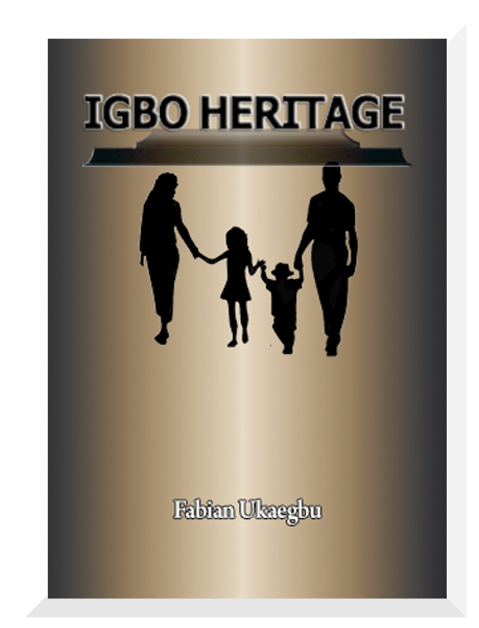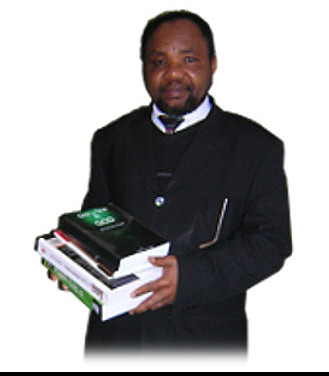Content Summary
Igbo is not dry land, tree or mineral oil. Igbo is the expressed character, conduct and life of the Igbos. When the Igbos slacked; they slump. A music usually danced clothed, if danced naked implies madness. The Igbos should check and review their conduct and approach to justice; the world is not new. Character is the vent of life. If the Igbos do not know how life changed for them, it is that they have lived absentminded of their custom. If it is really about hunger, have the Igbos stopped being hungry and what is making them ever hungry? Who has ever fully satisfied hunger with corrupt and ill-gotten things? If it is about wealth, have the Igbos become wealthier? Is there anything that fills the gap and soothe than custom? Custom defines character, what is Igbo without its customs? When your land becomes infertile of its usual crops signal curse; can the Igbos recognise the arm of nemesis?
Igbo heritage embraces anything Igbo. It is character reference of Igbo. As in defining a people, the characteristics of Igbo include the people, behaviours, customs, relationship, landmarks and environmental equity. As represented in Igbo social structure (The Igbo: The Afrikan Root of Nations chap. 2), Igbo has no earth deity; Chineke is Igbo head and foot; hence, no one does anything and hides away from Chiukwu. Igbo hailing from the seventh generation from Adam is the only race that has complete knowledge of custom from God. Chi1-Chineke2-Chiukwu3 is monotheistically metamorphic and not susceptible to the Trinity, which is for those learning God from Greek Olympiad culture. Chi is not divisible, supplementable or over-reachable. As Chi metamorphosed to Chineke and Chiukwu, Chi develops to any life and growth culture4. He is; he made; he rules what he made; this is what man inherited and should be doing as the image of God. Anything that distracts this is evil.
Igbo Heritage
As you would have known5, Igbo is the only race that started early to customise and personate Chiukwu. In the oldest written account (the Bible); Igbo emerged from seventh generation from Adam. According to Dr Meek, Igbo was anglicised Hebrew which is nothing without etymological and customary evidence. When Hebrew thoughts were distorted by Greek (331BC-AD325), we took foreign and tend to miss the foundational culture. Greece wrote Lamech (Lemechi) and Adah but Greek etymology has no ?ch? and challenged with Adah, it brainstormed to Eve but Adah continued in the lineage of Esau; thus, reminding of struggle to prevail but naturally snake does not swallow another snake.
For whatever reason of Igbo confusion and dwindling, a true believer in Chiukwu knows where his strength, might and help come. No people borrow ?Chi? from another people because it is developmental. What we shall see more is when a people go wrong, Chineke removes his face from them. Whosoever God removes his face from is in darkness or hell. Chineke has no replacement. In dealing with Chi/God, what we see or shall see more is as people fiddle or pretend to swallow pig or try to shadow others, often Chineke does not allow his just children to be swallowed; hence, Greece did not swallow Hebrew. We find colonialism in that way; meaning that the approach was wrong. The ancestors expressed this thus: Agbawo Dike Izu; hence, Jacob?s taking what belonged to Esau busted ominously to nothing eventually. Who else is like Igbo in the Royal Diadem of Chiukwu? Remember: live and let live is an equitable doctrine. Heritage is invisible; in this work, we shall demonstrate the consequences of wrong population management, poverty, greed and ignorance. No writer has written God before but derivatives of his relationship with generations. Thus, the best for God-fearing generation is to take Chiukwu as bounded rationality, where good or evil is reciprocated equitably.
The next in the structure are parents. For whatever reason, the family of male and female through which one came to this world is an imposition; hence, Gen. Goring?s statement: when I heard of culture, I ran for my revolver but I realised that, it is not gun but character of birth; hence, when a person is born, he may not be born with gold, diamond or silver spoon but has received the character of birth. This level is very important because the generic terms: ?father & mother? are never limiting but regenerative as children grow to become fathers and mothers. Fathers and mothers grow to become custodian trustees of customs and honouring father and mother is equitable doctrine.
Table Of Content
- Preface i
- Custom iii
- Environment iv
- Introduction viii
- About the book xxii
- Why was this book written? xxiii
- Name xxvii
- What is Custom? xxx
- Geographical location xxxiv
Chapter 1
- 1.1.Igbo and Nigeria: An Overview 1
- 1.2.The Spin-Bird warned Nigeria 15
- 1.3.National Constitutional Conference 26
- 1.4.Systems failure 32
- 1.5.Constitutional deficiency 33
- 1.6.Visualising Solution 38
Chapter 2
- 2.1. Igbo-man, Igbo-woman; Igbo-child 41
- 2.2. Language 42
- 2.3. Igbo-Ije-uwa 43
- 2.4. Man and woman serving the secret code 50
- 2.5. The secret code of life 54
- 2.6. Birth-right 58
- 2.7. The Luckiest People on Earth 61
Chapter 3
- 3.1. Igbo-man 64
- 3.2. The making of Igbo-man 66
- 3.3. Does Igbo believe in God? 69
- 3.4. Have the Igbos any way of proving God? 75
- 3.5. Divinity and holiness 81
- 3.6. What does Igbo Enwe Eze mean? 89
- 3.7. Igbo-man and Igbo 96
- 3.8. A mistake that did not end in death is a lesson 98
- 3.9. Community wise 104
- 3.10. Igbo custom 104
Chapter 4 108
- 4.1.Igbo-woman (basics) 110
- 4.2. Quarrel: Critical Dissonance & Harmony 113
- 4.3. Igbo Woman 114
- 4.4. The value of Igbo-woman 115
- 4.5. Woman power 118
- 4.6. Why do some wives like their son more? 123
- 4.7. A failed woman 123
- 4.8. The fall of Igbo women 124
- 4.9. Igbo on the Edge 126
- 4.10. The unfinished business 126
- 4.11. The rise of Igbo 128
- 4.12. Religiosity and Godliness 128
- 4.13. Author?s vested interest in Igbo women 130
- 4.14. Virtuous Woman: Jurisprudence 138
Chapter 5
- 5.1. Igbo-child 142
- 5.2. Why customs in this work? 144
- 5.3. Why are you Igbo? 145
- 5.4. How can Igbo identity be preserved? 146
- 5.5. Who is Igbo child? 148
- 5.6. What does Igbo child expect from Igbo? 152
- 5.7. What can Igbo child offer to Igbo? 153
- 5.8. Did Chineke err in making you Igbo? 154
- 5.9. What does fallen/confused Igbo mean to you? 157
- 5.10. What is good or bad about Igbo? 159
- 5.11. What is good about Igbo? 160
- 5.12. What is bad about Igbo? 161
- 5.13. Value added 161
- 5.14. Career advice 163
- 5.15. Comparative learning 164
- 5.16. Learning from mistakes 166
Chapter 6 168
- 6.1. Igbo Orientalism 168
- 6.2. Ekejiuba/Okparaeke 168
- 6.3. The Great challenge 171
- 6.4. Formal and informal insurance 173
- 6.5. Beware of hesitation/procrastination 174
- 6.6. Igbo communalism 175
- 6.7. Age-mate 176
- 6.8. Beware of Domestic Violence 177
- 6.9. End Time Preparation 179
- 6.10. Destiny 182
- 6.11. Who is my neighbour? 183
- 6.12. Nti taa n? anti ataghi.... 185
- 6.13. Philosophical pedigree 187
- 6.14. High blood pressure (causes and treatment) 190
- 6.15. Time management 193
- 6.16. Cleverness 195
- 6.17. Igbo-attire 197
- 6.18. Igbo language 197
- 6.19. Word of wisdom 198
- 6.20. Computer tricks and intelligence 199
- 6.21. Work & Skill 200
- 6.22. Too competitive and dependence 200
- 6.23. Unity, dedication and devotion 202
- 6.24. Inheritance 205
- 6.25. Godliness & goodwill 206
- 6.26. Let us treat our ignorance 211
- Chapter 7 212
- Conclusion 212
- Appendice
- Samples of Nigerian languages' alphabets

